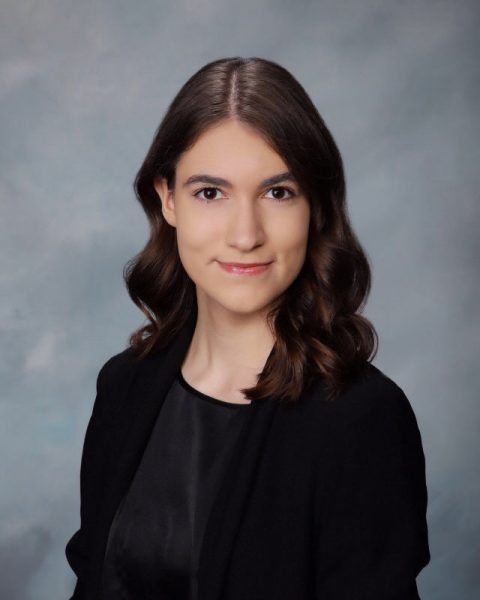For 16 years, Odesa, nestled on the picturesque coast of the Black Sea in southern Ukraine, was home for senior Melissa Ageyenko. But in March 2022, as the war between Russia and Ukraine raged on, she and her family were forced to flee their beloved hometown to start anew in a foreign land.
“A month after the war had started, the Russian army was in the nearest city to ours,” she said. “We were scared that maybe the army would enter our city. We just moved to have the opportunity to not to be scared every day.”
Since Russia’s invasion of Ukrainian territory in February 2022, the two countries have been locked in a state of constant conflict. The war has drastically impacted the daily lives of Ukrainian and Russian civilians.
The war has resulted in the largest refugee crisis in Europe since World War II, with over 17 million recorded border crossings out of Ukraine as of January 2023, as escalating conflicts and deteriorating living conditions drive civilians to seek safety elsewhere.
Thousands of Ukrainian civilians are left without basic necessities like clean water and electricity, and wailing sirens disrupt daily life in the cities, warning of impending Russian air-raids and approaching missile attacks.
“We weren’t able to sleep properly because of the rockets, loud noises and alarms,” Ageyenko said. “They would be set off for hours.”
Faced with the dire circumstances, Ageyenko’s father was offered a job in the United States. Seeing it as their best chance for a better future, the family, including Ageyenko, her parents and her younger sister, fled their city and headed to America.
For Ageyenko and her family, the journey to Poland was a test of endurance. They were packed tightly into overcrowded train cars and braved freezing temperatures on foot. The conditions were cramped and harsh, but their determination to reach their destination kept them going.
Eventually, they traveled to Canada and finally arrived in the United States.
Ageyenko’s past continues to haunt her as she grapples with the guilt of not being able to save her loved ones from the dire situation in Ukraine. She left her old life behind, but she can’t escape the memories of those she couldn’t help to escape as well.
“The most difficult part about leaving your country is when you understand that you can move, but some of your relatives can’t,” she said. “Some of your relatives are in occupied cities and you don’t have the ability to call them because the network is not working and you simply don’t know whether they are alive or not. When you are saved, but your relatives are not, you’re just left sitting there, feeling pain about it.”
Her family struggled to find an affordable apartment in Los Angeles. Even more jarring was the startling realization of the city’s economic inequality.
“Los Angeles is like a bipolar city, because I can go to the streets and see beautiful buildings but see homeless people two meters away,” Ageyenko said. “We don’t have that in Ukraine.”
In Ukraine, the academic curriculum stands in stark contrast to that of the United States. Each year, students enroll in a diverse array of approximately 15 courses, yet attend different classes each day. Classes are brief, lasting roughly an hour and a half, allowing students to attend only four classes a day.
In addition to their academic curriculum, students learn skills like administering first aid and practical shooting. These additional lessons are likely a reflection of the countries’ ongoing political climate.
Ageyenko began learning English as early as pre-school, as it is a part of the Ukrainian academic curriculum. But even though she was fluent, it has been difficult for her to connect with Americans.
Despite these barriers, Ageyenko has found a sense of belonging within a community of Russian-speakers.
“I have a whole group of Russian-speaking people that are Russian, Belarusian, Ukrainian and Armenian,” she said. “We communicate well together.”
Many of her friends who immigrated to the United States share a similar background and reason for leaving their home country, Russia. As a result of Russian President Vladmir Putin’s announcement of a draft, hundreds of thousands of Russian citizens have fled the country.
The ongoing war has led to an undeserved stigma against Russian people, according to Ageyenko.
“Hate should only be spread towards those who support evil actions that lead to deaths,” she said. “The ones who are against it, who try to help Ukrainians and Russians who suffer from war, do not deserve it.”
Though her future remains uncertain, Ageyenko will forever be connected to her home country.
“There’s a lot of fields, a golden sky and the sea nearby,” she said. “When it’s early in the morning, you wake up and you go to school and you can smell the breeze. It was so beautiful to me, and I have really good memories. I think the main part of that was the people, because the people are the biggest part of our lives.”





